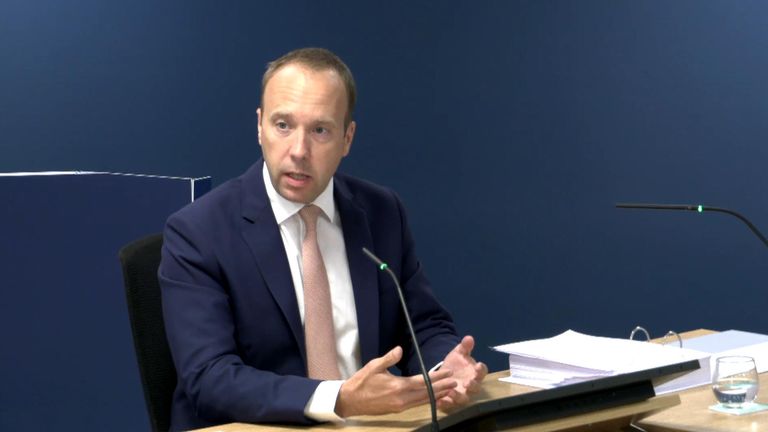Matt Hancock’s evidence to the Covid inquiry was some of the most explosive we’ve seen so far. It was largely damaging to anyone who wasn’t Matt Hancock, naturally, but the former health secretary did induce some rather big cringes from all present when his voice cracked as he said ‘I’m not very good at talking about my emotions’. He also apologised to all those who had lost loved ones. Hancock did offer some important insights into the mistakes made at crucial moments in the run-up to the pandemic.
He also backed the idea of a resilience minister who can work on planning rather than being distracted by the many other priorities in government
He told the inquiry that it was an ‘absolute tragedy’ that the planning had focused more on how to deal with large numbers of dead people, rather than on how to prevent so many dying in the first place. ‘The absolutely central problem with the planning in the UK was that the doctrine was wrong. The doctrine of the UK was to plan for the consequences of a disaster. Can we buy enough body bags? Where are we going to bury the dead? That was completely wrong.’ Instead, he argued that ‘central to pandemic planning’ should have been ‘how do you stop the virus spreading?’ He said that planners did not believe that ‘we’ve got to be ready to hit a pandemic hard: that we’ve got to be able to take action – lockdown action if necessary, that is wider, earlier, more stringent than feels comfortable at the time. And the failure to plan for that was a much bigger flaw in the strategy than the fact that it was targeted at the wrong disease’.
One dramatic claim was that the health service came ‘extremely close – within hours – of running out of medicines for intensive care during the pandemic’, and that the only reason they didn’t run out was because of the preparations made for medicine supply in the planning for a no-deal Brexit. But EU exit planning was also an overall hindrance to preparations for a pandemic, he said, because it led to an ‘overall reshaping of the department’ so the government could be ready for a ‘disorganised Brexit’.
There were other failures that went beyond planning for the health service. No one will have been surprised to hear Hancock say that pandemic preparation for care homes was ‘terrible’ – or perhaps we should have been surprised, given he spent the middle of 2020 claiming that the government had ‘thrown a protective ring around care homes’. His way of dealing with this contradiction was that the department didn’t know – and couldn’t know – what preparations local authorities had made for care homes.
Hancock will be back for the next module: this one is on pandemic resilience and preparedness. He has clearly thought a lot about the mistakes made even since he published his book on his time as health secretary during Covid. The argument about what exactly we should have been prepared for is a new one, for instance. He also backed the idea of a resilience minister who can work on planning rather than being distracted by the many other priorities in government. That seems to be a dead cert for one of the recommendations to come out of this inquiry, though as Hancock knows, government turnover is so rapid that the bigger challenge won’t be stopping that minister from being distracted by short-term issues, but keeping them in position for longer than 18 months so they can see the thing through.







Comments